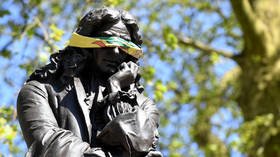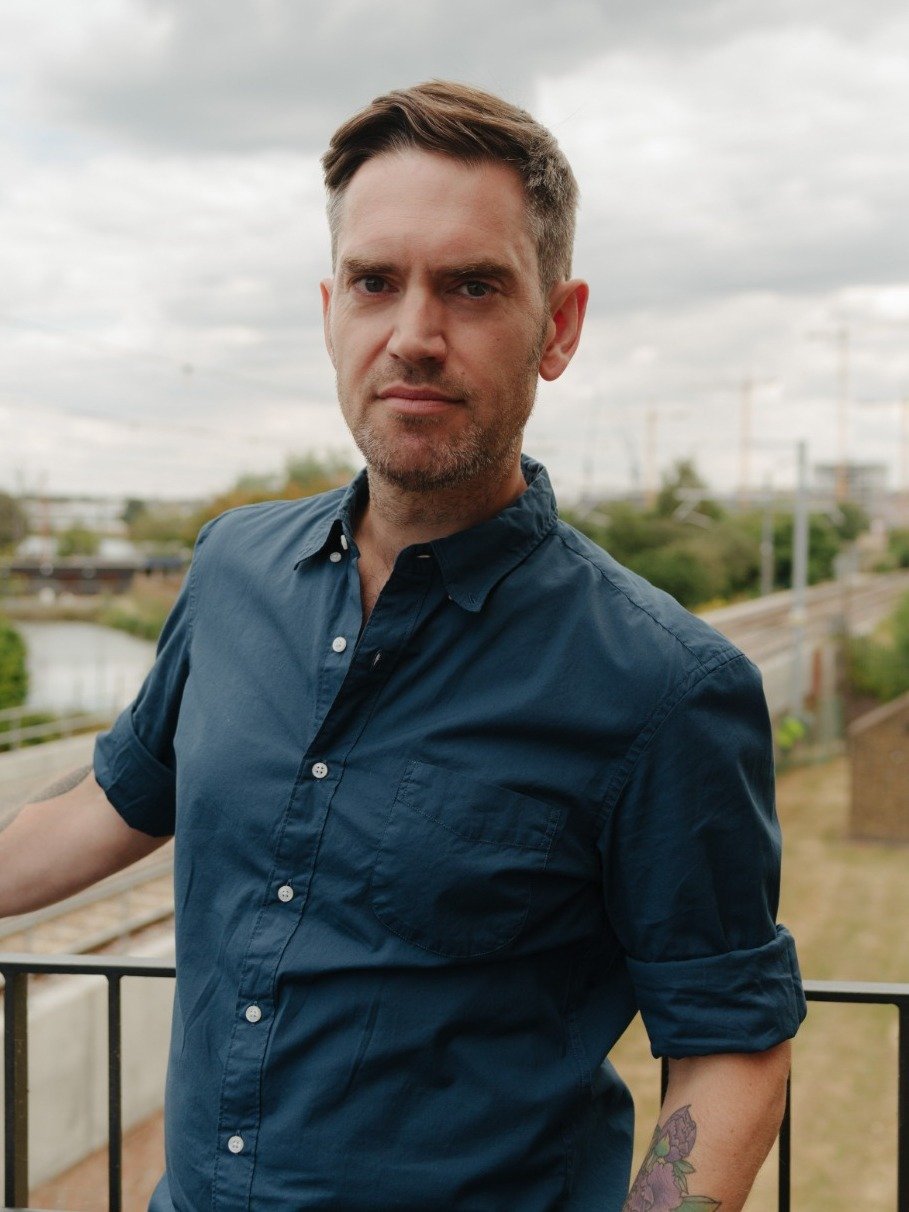Either condemn George Floyd’s death or shut up about statues

If you weren’t vocal in condemning the brutal murder of a living human being, then it’s hard to justify your anger over a 125-year-old lump of bronze being torn down.
The treatment of an elderly man in Bristol last weekend has led to an outpouring of rage. The man was dragged from his home by a cheering crowd before his lifeless body was thrown into the River Avon. Yet another casualty of the global unrest that has followed the killing of George Floyd by Minneapolis police on May 25.
This victim was a bit different, though: he was 125 years old and made of bronze. It was a statue of Edward Colston, a man who died in 1721.
But Colston wasn’t just any man – not everyone gets a statue. He was a slave trader. A very successful slave trader, in fact, responsible for shipping an estimated 84,000 African men to the Americas (with 19,000 dying on the journey). So successful was Colston that he paid for much of Bristol, a city that became at one point England’s second-wealthiest, thanks mainly to slavery.
So, this wasn’t a random attack. The statue wasn’t collateral damage, but very much linked to the cause of the protests. The statue made a lot of people very angry, but so too did its downfall.
Also on rt.com Abolish police? History shows it’s a terrible idea, but obvious solution doesn’t fit the narrativeSome called it vandalism and mob rule, others said that it was pulling down history, others asked why, if people can pull down Colston’s statue, shouldn’t we pull down statues of “terrorist” Nelson Mandela. Many are telling us that it’ll be the likes of Oliver Cromwell, Queen Victoria and Winston Churchill next. Churchill’s statue in Parliament Square has already been graffitied during the protests.
Indeed, there has been an online call by some of the UK’s more extreme elements for “thousands of patriots” to guard Churchill’s statue at 10am on Saturday, which seems a very precise time to defend against an attack. I mean, surely all the protesters have to do is turn up on Friday?
For me, the whole ‘removal of statues’ debate is a nuanced one, which I know isn’t a fashionable stance in 2020, but there you go. Sometimes it’s understandable, like Hitler statues in Germany, or Cromwell and Victoria in Ireland, but in most cases, it’s not clear cut.
I would suggest, however, that Colston’s is unlikely to be missed by many people. Not a lot of Colston fanboys and girls are out there these days. He’s certainly no Churchill. In fact, I’d wager good money that the angry statue-defenders have never heard of Colston, but let’s assume they’re arguing a point of principle. That’s fine.
What’s not fine, though, is getting angry about this statue if they didn’t speak up in condemnation of George Floyd’s murder or, worse, they defended the actions that led to his death.
If you are a human being and you get more worked up, more vocal, over a lump of stone or metal than the death of another human being, then it says one of two things: either you don’t value human life or you don’t value the life of humans like Floyd. That loses you moral authority. There are people who I think the world would be better off without, but I don’t think that an obelisk or ornamental water feature is more important than their right to not be murdered.
Sadly, though, some people seem to disagree.
I’m not just talking about extremists like the far-right Tommy Robinson, who, in a red-faced video call to defend Churchill’s statue, reminded us how Winnie “died” to win World War II – which, alongside ignoring the efforts of the USSR and USA, makes his spell as prime minister from 1951-55 very impressive. I’m not only talking about your garden variety Twitter troll, rent-a-quote or mainstream media commentator, either. I’m talking about powerful people, members of our ruling elite.
UK Home Secretary Priti Patel, in charge of domestic law, order and (allegedly) justice, gave a one-word description of Floyd’s death – “sickening” – but didn’t condemn those involved and asked people to stay away from Black Lives Matter protests on health grounds. The drowning of a 19th-century statue, however, was “utterly disgusting” and she said that “justice will follow” its removal.
These demonstrations have been subverted by thuggery. Justice will follow. pic.twitter.com/CL3gfOthkg
— Priti Patel (@pritipatel) June 8, 2020
Home Secretary @pritipatel speaking this afternoon in the @HouseofCommons: ‘To the criminal minority who have subverted this cause with their thuggery, I simply say this: Your behaviour is shameful, and you will face justice.’ pic.twitter.com/wkFpd4LuWi
— Home Office (@ukhomeoffice) June 8, 2020
In fact, the lack of condemnation of Floyd’s killing from many major politicians has been deafeningly quiet. You got the odd “tragic” or “sad,” as if it was an accident, but none of the rage directed at the “thuggery” (also Patel) of dunking Bronze Colston. Conservative MP Ben Bradley, for example, called Floyd’s death a “tragedy” on his website, yet tweeted that historical figures like Colston “didn’t know any better” and called the statue-topplers “rioters.”
If we start to judge historical figures by 21st century standards, we'll find that quiet a few folks weren't that nice... Almost as if they didn't know any better 🤔
— Ben Bradley MP (@BBradley_Mans) June 7, 2020
I wish this we're unbelievable, but sadly it's what we've come to expect from the modern Labour party, siding with rioters over those who follow the rules!! https://t.co/OwJ3Cp7TWv
— Ben Bradley MP (@BBradley_Mans) June 8, 2020
Policing minister Kit Malthouse described their actions as “mob rule” and “undoubtedly a crime,” urging a police investigation into the matter. A search of Google and Twitter for Malthouse’s comments on the killing of Floyd produced no results.
I feel like I’ve gone through the looking glass, having to point out that this weighting of values, this placing of plinths over people, is neither normal nor right. But then, you know, this is 2020.
By the way, the Churchill statue gets daubed with graffiti on a fairly regular basis. This is then cleaned off and everyone moves on. I can only assume that this time there’s something else motivating these “patriots.” I wonder what that might be.
The statements, views and opinions expressed in this column are solely those of the author and do not necessarily represent those of RT.















